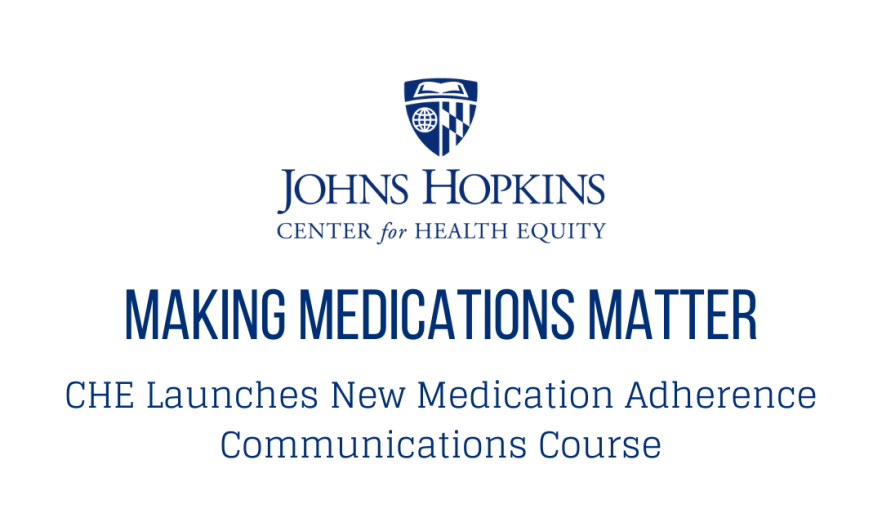Physicians Can Improve Patient Communication with Free Course

Medication non-adherence is an ongoing problem, with about one out of every two patients suffering from a chronic disease finding themselves unable to adhere to some aspect of their medication regimen (1). In an attempt to address this issue, the Johns Hopkins Center for Health Equity (CHE) has released a free online training course entitled Making Medications Matter that uses evidence-based learning techniques to help increase the likelihood of patients sticking to their prescribed medications. Through this course, CHE aims to improve clinician-patient communication when discussing medication adherence.
Making Medications Matter emerged from CHE’s larger research project, Project ReD CHiP (Reducing Disparities and Controlling Hypertension in Primary Care), which implemented three complementary multi-level interventions designed to improve blood pressure measurement, provide patient care management services, and offer expanded provider education resources. Project ReD CHiP’s main hypothesis was that each intervention would have an additive effect on improvements in care consistent with treatment guidelines.
Making Medications Matter was developed with the help of clinicians to help improve medication adherence using a patient-centered approach. By using a patient-centered approach, Making Medications Matter provides participants with the skills to effectively communicate with patients, engage patients as active participants in their own health, and explore the challenges preventing patients from taking their medications as prescribed.
The Making Medications Matter course provides training videos that highlight examples of skills clinicians can use to communicate with patients; the skills are divided between “Assessment Skills” and “Partnering with Patient Skills” and focus on creating an environment where patients feel capable of openly discussing their circumstances and empowered to voice their thoughts, concerns, and ideas about their medication regimen. The videos depict three interactions between physicians and patients; each patient faces unique challenges that prevent them from adhering to their medication regimens. Through these interactions, the physicians demonstrate best practices for communicating with patients in order to improve medication adherence.
The Making Medications Matter course, which can be completed in less than 30 minutes, offers two “learning paths” for participants: a “Skills Path” and a “Patient Path.” While both paths contain the same information and videos, participants can choose whether to focus on viewing examples of each skill concurrently or to follow the story of each patient in order to gain a “big picture” view of how the skills in the course build upon each other and impact the overall experience of a patient.
Making Medications Matter is available, free of cost, for any providers. Learn more and register here!
1. Kleinsinger F. The Unmet Challenge of Medication Nonadherence. Perm J. 2018;22:18-033. doi:10.7812/TPP/18-033
